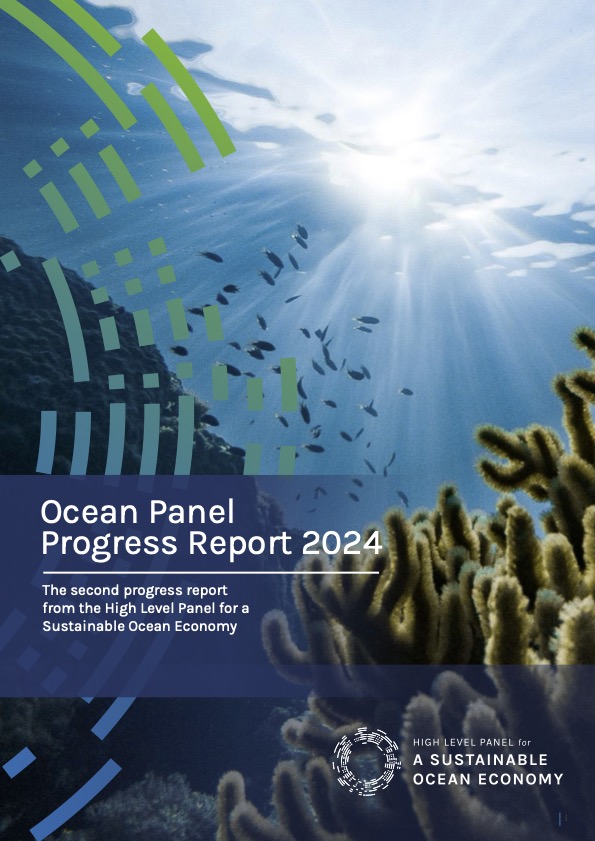As co-chairs of the High Level Panel for a Sustainable Ocean Economy (Ocean Panel), we present the Ocean Panel’s second Progress Report, marking another significant milestone in our collective journey towards a sustainable ocean economy.
In 2020, we released the Transformations agenda, in which we identified 14 outcomes and 74 priority actions that we need to take across five critical areas—ocean health, ocean wealth, ocean equity, ocean knowledge and ocean finance.
The Transformations agenda is informed by leading-edge science, the latest knowledge, and state-of-the-art thinking, and is the culmination of a historic effort to chart the course from ambition to action, and from action to impact, towards our shared vision. In this context, the Ocean Panel member’s commitment to sustainably manage 100% of our ocean areas under national jurisdiction by 2025, for founding members, or five years after joining for others, is more crucial than ever. Our membership has expanded to 19 nations, representing 50 percent of global coastlines and 45 percent of the world’s Exclusive Economic Zones (EEZ) – showcasing diverse geographies and perspectives, while united in a shared vision for ocean stewardship.
Two years have passed since our first progress report, and the urgency of our mission has only intensified. This second progress report demonstrates the tangible advancements we’ve made across the five pillars of the Transformations agenda and towards our 2030 goals. It takes an analytical approach to showcase progress, highlighting our steps forward towards the headline commitment of achieving 100% sustainable ocean management guided by Sustainable Ocean Plans (SOPs) and the Transformations agenda’s priority actions.
SOPs are critical to the Ocean Panel’s ambitions, offering a comprehensive policy framework
to sustainably manage 100% of national waters for the benefit of people, nature and planet. At least nine member countries are now implementing and/or updating their SOPs, with others making significant strides. With over three-quarters of Ocean Panel countries’ SOPs supported by legislative measures or policies to strengthen their institutional backing, we are making headway towards meeting our deadline.
We have also assessed progress against a focused set of 26 of the 74 priority actions from the Transformations agenda, revealing developments across all pillars. For instance, over 15 of Ocean Panel countries are advancing sustainable tourism and addressing harmful fisheries subsidies. The Ocean Panel also strongly advocates for all coastal and ocean states to join in the ambition towards 100% sustainable ocean management. We applaud the Unlocking Blue Pacific Prosperity (UBPP) initiative, launched at the 28th Conference of the Parties to the United Nations Framework Convention on Climate Change by Pacific Island leaders committing to holistically manage 100% of the Blue Pacific Continent and effectively protect 30 percent of it. The UBPP initiative currently stands as the world’s largest ocean stewardship effort in history.
We recognise that our journey is far from complete. This report not only displays our achievements but also honestly addresses the challenges we face. The path to a fully sustainable ocean economy is complex and long, requiring sustained effort, innovation, finance, capacity building and collaboration.
As we look ahead, we’re inspired by the momentum the Ocean Panel has built and the opportunities that lie before us. The ocean’s potential to contribute to mitigating climate change, increasing food security and boosting economic prosperity is vast and largely untapped. By continuing to work together we can unlock this potential while safeguarding the ocean’s health for future generations.
We invite other nations, businesses, organisations and individuals to join us in this crucial endeavour to work towards the Transformations agenda. Together, we can redefine our relationship with the ocean, ensuring that protection, production and prosperity go hand in hand.
The ocean remains a vital lifeline for our planet—regulating our climate, sustaining biodiversity and supporting livelihoods across the globe—and it continues to face unprecedented challenges from climate change, pollution, biodiversity loss and overexploitation. Let’s fulfil our mandate as one of its greatest champions.


